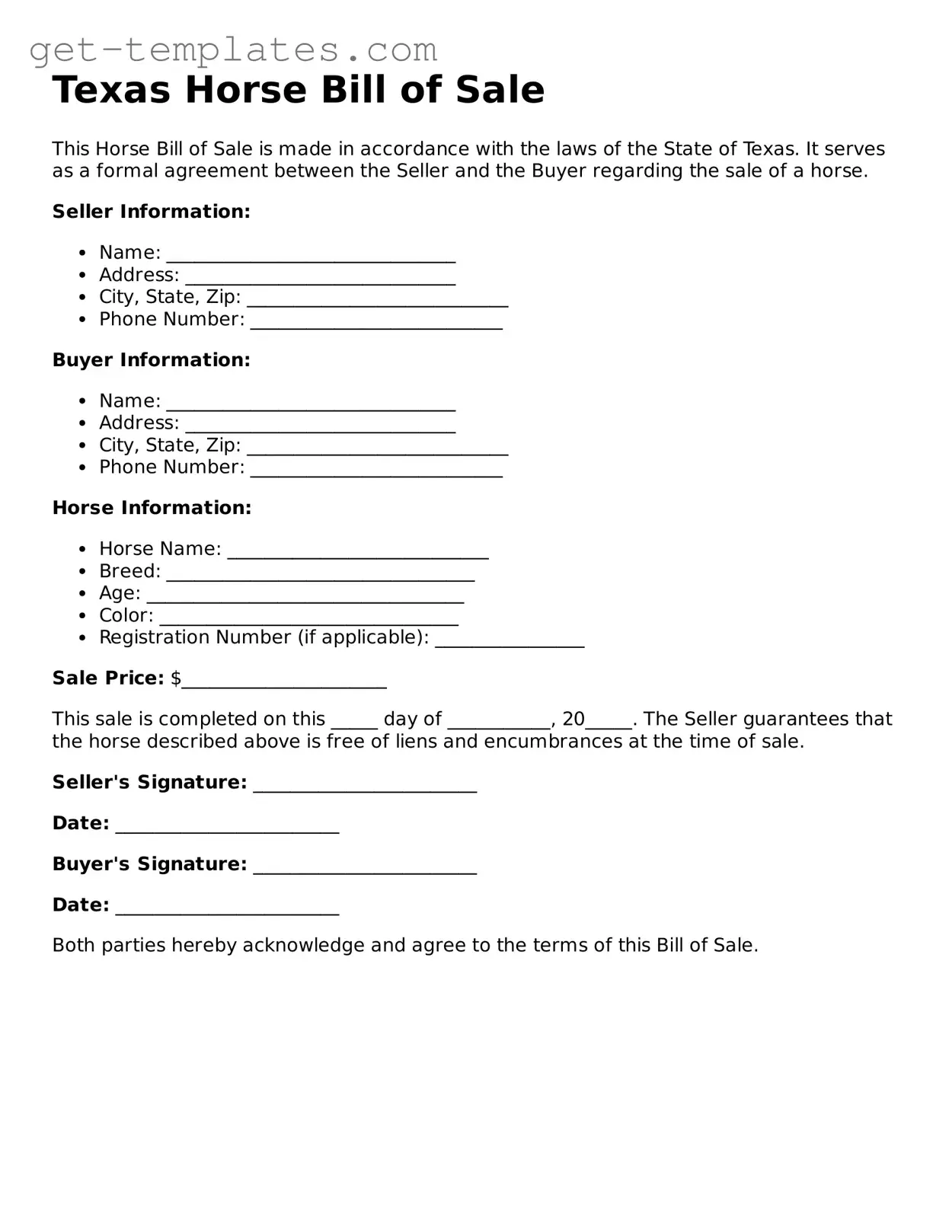Attorney-Approved Horse Bill of Sale Document for Texas
The Texas Horse Bill of Sale form is a legal document that facilitates the transfer of ownership of a horse from one party to another. This form outlines essential details such as the horse's description, sale price, and the names of both the buyer and seller. Understanding this form is crucial for ensuring a smooth transaction and protecting the interests of both parties involved.
Get Document Online

Attorney-Approved Horse Bill of Sale Document for Texas
Get Document Online
You’re halfway through — finish the form
Finish Horse Bill of Sale online — edit, save, download made easy.
Get Document Online
or
⇓ PDF Form
